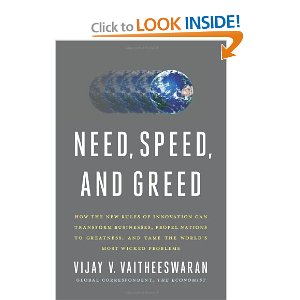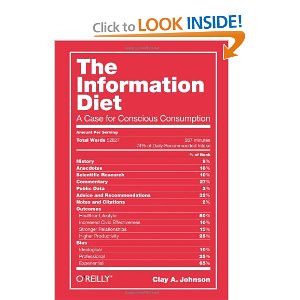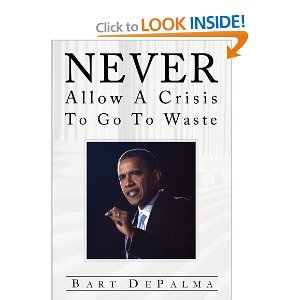5.0 out of 5 stars Ably Researched and Presented Inspection of One Side of America — the Part Without a Soul,March 20, 201
First off, this is not a “sneering” book, this is a solidly researched and ably presented inspection of Ayn Rand, key people in the Ayn Rand “movement” of Objectivism, and on balance the author is both sympathetic and critical — it takes intelligence and integrity to carry this off, those that lack either or both of these qualities should not buy the book. For the rest of us, it is a small piece of the puzzle, a small but most cogent explanation of why the 1% really do look down on the rest of us, and have neither God nor guilt about greed. HOWEVER, I must emphasize that one of the author's findings is that it is not just the 1% that buy into this whole market laissez faire posture, but a good number of the “little people” who have no idea what a philosophy can or should be.
George Soros nailed it with his essay on “My Philanthropy” subsequently a major portion of the book, The Philanthropy of George Soros: Building Open Societies. Blasting what he calls “the Enlightenment fallacy” he points out that all men are not rational, not necessarily good to one another, and not at all equipped to address the public interest in isolation.
Having seen the negative reviews, I was very pleasantly surprised right off by the author's introduction of his own book. I read a great deal — in 98 categories best understood by accessing all my Amazon reviews via category at Phi Beta Iota the Public Intelligence Blog. I was immediately put at ease — serious author, serious approach to the topic, a good plan, and an undeniable commitment to the public interest.
I have to point out that one reason I was interested in this book was because Ayn Rand is reputed to be a favorite among Tea Partiers who want less or no government, and despite the long standing conflicts between Objectivists (code for anything goes, survival of the fittest, altruism is for wimps) and libertarians (themselves so focused on Liberty they cannot get a grip on the rest of the Preamble to the Constitution of the USA, i.e. little things like general welfare, domestic tranquility, and justice. Which is to day, both the Ayn Rand People and the Libertarians — Ron Paul, I am talking to you and still waiting for a courteous answer to my two letters in January — fail on three out of four Constitutional fundamentals. So does Barack Obama! What I have learned from all of my reading and observation is that the two-party tyranny is godless and amoral, all posturing aside. Ayn Rand fits right in.
The author has done his homework–more than his homework. With due credit to biographers of Ayn Rand (this book is not a biography, it is a tour of Ayn Rand Nation as the title says) he resurrects people who were “buried” or shunned, exiled, reviled, or with great fanfare “ignored” by Ayn Rand.
I learn things I did not know in this book — her opposition to World War II (“let the Germans and the Russians kill each other off”); her favoritism toward Israel (in sharp distinction to the Libertarian ire and refusal to bow to Israeli influence) — her prediction of the 2008-2012 (and soon the 2013-2014) huge financial crash. She nailed it. Government debt in any form that is cumulative and passed off to the future will eventually destroy the nation. The author points out that no one from the Ann Rand Institute realizes she said this, and they have consequently failed to promulgate this one bit of getting it right decades in advance.
Of course Michael Lewis said the same thing in Liar's Poker, and both John Bogle and William Greider have spoken to the issue in their respective books The Battle for the Soul of Capitalism and The Soul of Capitalism: Opening Paths to a Moral Economy, and while it may be that the author goes a bridge too far in laying all of our failures of character and culture at the feet of Ayn Rand, she does seem to fill a very large hole in people's heads and souls — empty spaces without her.
What really jumps out at me as I pass the midway mark is how unethical and ignorant top figures in the upper reaches of US finance are — Henry Paulson, Tim Geithner, Ben Pernanke, John Mack, the Wells Fargo guy, etcetera. They lack intelligence and they lack integrity and they survive on being part of the club, of being reliable to the few at the expense of the many. It makes me sick to contemplate the depravity of the collective US public mind, that it cannot see these people for the charlAtans and postuRers and cheats that they actually are.
It also merits observation that the 1% are so far removed from the Ayn Rand circles as to make her a peasant on a stump, spouting ideas into the ether and completely irrelevant to what some call “deep secrecy” and the manner in which a few banking families (including those in China and Indonesia and India) manage all. This is a side show, not the main event. The named individual in US finance–as greedy and treasonous as they might be, are bit players in a much larger drama.
Throughout the book Barack Obama and his Administration are present as the anti-thesis of Objectivism, and I remind myself over and over again that it is truly a shame that what we have right now in our government is a combination of irresponsible entitlement socialism and irresponsible economic and military fascism. Only in America. Hence, absent a deep understanding of the fact that CORRUPTION is the common ingredient for the two-party system that excludes all other nationally accredited parties from the ballot, and that legalizes crime as a matter of routine (Matt Taibbi is still the best on this, see my summary review of Griftopia: A Story of Bankers, Politicians, and the Most Audacious Power Grab in American History), it is safe to say that both Objectivism and the mix of socialism and fascism now represented by Barack Obama (as the puppet in chief) are identical: amoral, atheist, and absent any coherent strategic analytic model that can actually connect to reality or project future outcomes.
As someone who has spent the past decade reflecting on the urgency of demanding BOTH intelligence AND integrity from all eight tribes at all levels (academia, civil society, commerce, government, law enforcement, media, military, and non-governmental/non-profit) I am charmed by the author's skewering of Alan Greenspan, in a chapter centered on Greenspan, Greenspan's notions of integrity (not), and how much damage Greenspan did to the US with his ignorance and lack of integrity in the holistic sense. I myself fell prey to the Greenspan myth, and while I do not go back and rewrite my reviews, there are several back a few years that I now realize were written from a less than fully informed perspective. I continue to learn, and this book is one I strongly recommend — it is about Ayn Rand Nation, but in passing, it is about what the USA is or is not. For the complete opposite, see my summary of the phenomenal book by Kevin O'Keefe, The Average American: The Extraordinary Search for the Nation's Most Ordinary Citizen.
QUOTE (235): Greenspan could seek to escape reality, but his words and his actions could not be so neatly erased. The fact was that Rand had failed. Her ideas had collided with the real world, a world in which monomaniacal selfishness is not beneficial but harmful, in which businessmen are driven by the scent of money to ast recklessly, and in which capitalism requires government oversight lest capitalist excesses hurt the financial system and society as a whole.”
The author concludes along these lines, but here I believe he misses a very important point. I continue to rate the book five stars because there are too many negative reviews that have no foundation in fact. This is a worthy book for anyone with both intelligence and integrity. It's not about capitalism and it's not about government. It's about education. Since Carnegie and Rockefeller were allowed to standardize what John Gato calls Weapons of Mass Instruction: A Schoolteacher's Journey Through the Dark World of Compulsory Schooling the USA has become an idiot nation, beating the creativity out of kids, still offering today rote instruction that is a hundred years out of date. My youngest is about to “test” out of high school after the 10th grade and spend two years working and traveling–Fairfax County has a good reputation within the nation of inattentive idiots [I certainly include myself in that group], but between its neo-Nazi zero tolerance for youthful indiscretions and its inbred mediocrity of programming, I cannot in good conscience force my son to waste his next two years in the wasteland called “high school.” We lost sight of what it means to be a citizen — a responsible citizen with an obligation to apply their intelligence at all times with integrity, irrespective of which tribe they work for…. my long-term ambition remains to that of integrating education, intelligence, and research, creating a Smart Nation, in which all the bureaucracies are euthenized, and we allow our natural creativity and deeper instincts of community to come forward.
A few other books within my limits:
Nonzero: The Logic of Human Destiny
Ecological Economics, Second Edition: Principles and Applications
The Genius of the Beast: A Radical Re-Vision of Capitalism
For a complete overview of books by others exploring both the negative and positive of our situation, search for these two lists or find them at Phi Beta Iota the Public Intelligence Blog under books; each review leads back to its Amazon page:
Worth a Look: Book Review Lists (Positive)
Worth a Look: Book Review Lists (Negative)
This book is a mirror. Look into it.
Robert Steele
THE OPEN SOURCE EVERYTHING MANIFESTO: Transparency, Truth & Trust 2










